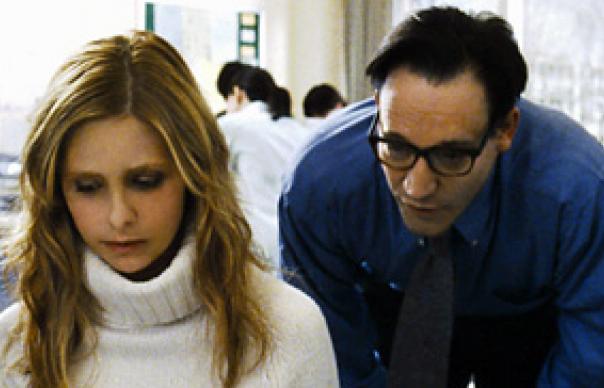The mixed reception given to Birth at recent film festivals may have been unfairly distorted by weighty expectations. Glazer's sensational 2000 debut Sexy Beast was one of the strongest British films of recent years, while anything Kidman touches these days is scrutinised as a star vehicle first and a work of cinema second. The mouthy young auteur's second feature also arrives with a troubled history of reshoots and backstage battles, often early warnings of creative cop-out and committee-driven compromise. But not so with Birth, which turns out to be a bold, haunting highbrow thriller with paranormal trimmings. Kidman plays Anna, a psychologically brittle Upper Manhattan widow who, on the eve of marrying her new suitor Joseph (Huston), is stalked by a 10-year-old (Bright) claiming to be the reincarnation of her late husband. He even knows enough intimate detail to prove it, plunging Anna into a vertiginous panic of impossible hopes and desires. As co-writer and director, Glazer unwinds this bizarre premise for slow-burn suspense, but he recognises its humour, too. Joseph's stuffed-shirt rivalry and Anna's quasi-sexual feelings towards the young interloper are both presented as comically absurd. And yet profound emotions are never far away?one pivotal close-up on Kidman's face, wracked with doubt and grief and terrible exhilaration, fills the screen for a cinematic eternity as it bores its way through the viewer's skull. Fantastic. Birth, above all, is an immensely beautiful work shot in wintry earth tones. The style is filtered through Glazer's directorial influences without making them too blatant: Kubrick for the glacial pace and palatial elegance, Rosemary's Baby for Kidman's gamine crop and paranoid isolation, The Sixth Sense for Bright's eerie calm and brooding secrecy. But while the preposterous plot could easily have resolved itself in a schlocky Twilight Zone or X Files flourish, Glazer defies convention with a final twist that some will find disappointingly prosaic, others intriguingly open-ended. Crucially, though, the story's 'explanation' is less important than its accumulated observations on grief and loss and the soul-gnawing human hunger to believe in a love that survives beyond death itself. Taken on these terms, Birth is a symphonic, engrossing, quietly devastating work.
The mixed reception given to Birth at recent film festivals may have been unfairly distorted by weighty expectations. Glazer’s sensational 2000 debut Sexy Beast was one of the strongest British films of recent years, while anything Kidman touches these days is scrutinised as a star vehicle first and a work of cinema second. The mouthy young auteur’s second feature also arrives with a troubled history of reshoots and backstage battles, often early warnings of creative cop-out and committee-driven compromise.
But not so with Birth, which turns out to be a bold, haunting highbrow thriller with paranormal trimmings. Kidman plays Anna, a psychologically brittle Upper Manhattan widow who, on the eve of marrying her new suitor Joseph (Huston), is stalked by a 10-year-old (Bright) claiming to be the reincarnation of her late husband. He even knows enough intimate detail to prove it, plunging Anna into a vertiginous panic of impossible hopes and desires.
As co-writer and director, Glazer unwinds this bizarre premise for slow-burn suspense, but he recognises its humour, too. Joseph’s stuffed-shirt rivalry and Anna’s quasi-sexual feelings towards the young interloper are both presented as comically absurd. And yet profound emotions are never far away?one pivotal close-up on Kidman’s face, wracked with doubt and grief and terrible exhilaration, fills the screen for a cinematic eternity as it bores its way through the viewer’s skull. Fantastic.
Birth, above all, is an immensely beautiful work shot in wintry earth tones. The style is filtered through Glazer’s directorial influences without making them too blatant: Kubrick for the glacial pace and palatial elegance, Rosemary’s Baby for Kidman’s gamine crop and paranoid isolation, The Sixth Sense for Bright’s eerie calm and brooding secrecy.
But while the preposterous plot could easily have resolved itself in a schlocky Twilight Zone or X Files flourish, Glazer defies convention with a final twist that some will find disappointingly prosaic, others intriguingly open-ended. Crucially, though, the story’s ‘explanation’ is less important than its accumulated observations on grief and loss and the soul-gnawing human hunger to believe in a love that survives beyond death itself. Taken on these terms, Birth is a symphonic, engrossing, quietly devastating work.



